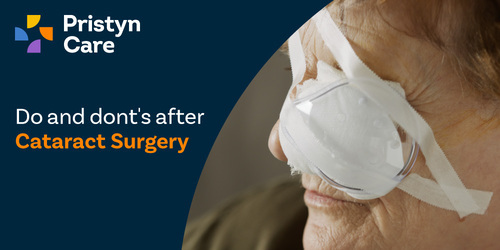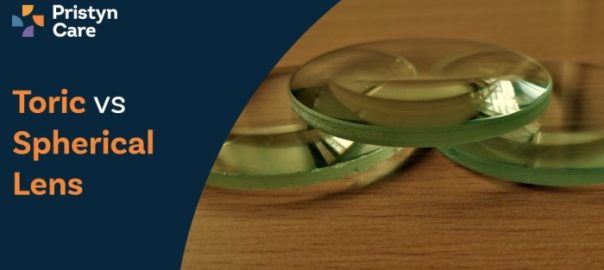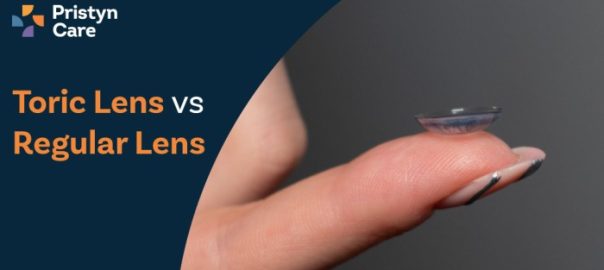![]() Views: 107
Views: 107
Precautions after Cataract Surgery
Have you ever looked through a cloudy window? Now, imagine if that was your eyesight. This is what individuals with cataracts experience.
Dedicated Support at Every Step!
Our Doctors are available 24 hours a day, 7 days a week to help you!
Call Us9513-316-643A cataract is a cloudy area that develops in the natural lens of the eye, impairing vision. This makes daily activities like reading, watching television, or driving more challenging. Cataract surgery involves removing this cloudy lens and replacing it with an artificial one, known as an intraocular lens (IOL).
Often performed on an outpatient basis in the operation theatre (OT), this safe and effective procedure has a high success rate in restoring clear vision. As cataracts are primarily age-related, the surgery is frequently carried out on older adults to enhance their quality of life. However, regardless of age, anyone suffering from impaired vision due to cataracts can benefit from this surgery.
Table of Contents
The Importance of Post-operative Care for Smooth Recovery and Successful Outcome
Post-operative care is as crucial as the procedure itself in cataract surgery. It ensures a smooth recovery and successful outcome, bringing light back into the patient's world.
After the surgery, the patient is generally given detailed instructions by their ophthalmologist. This often includes using prescribed eye drops to prevent infection and inflammation. Maintaining proper eye hygiene is essential. Regular follow-up appointments with your doctor are necessary to monitor healing and address any issues promptly.
It's important to remember that neglecting these guidelines can lead to complications, potentially jeopardizing the surgical success and visual restoration achieved through the procedure. Therefore, it's crucial to take all necessary precautions after cataract surgery seriously. After all, your eyes are your window to the world!
No Cost EMI, Hassle-free Insurance Approval
Immediate Post-Surgery Care
In the aftermath of a cataract operation, immediate post-surgery care is of utmost importance for a successful recovery. Here are some key aspects that you need to pay attention to:
- Protection: After the surgery, a lightweight shield or eye pad is typically placed over the operated eye to prevent accidental rubbing or contact. It's crucial to wear this, especially while sleeping, for several days to protect your eye during the healing process.
- Medication: You'll be prescribed anti-inflammatory and antibiotic eye drops to reduce inflammation and prevent infection. Diligently following the prescribed schedule for these medications is essential for optimal healing.
- Activity Restrictions: Avoid strenuous activities, heavy lifting, and bending over for at least a week post-surgery. Also, refrain from driving until your ophthalmologist gives you the green light.
- Hygiene: It is crucial to maintain impeccable hygiene around your eyes. Avoid getting water, soap, or shampoo in your operated eye, and avoid rubbing it to prevent irritation or infection.
- Follow-Up: Regular follow-up appointments with your eye doctor are necessary to monitor your recovery and address any complications promptly. If you experience any unusual symptoms, such as increased pain or vision changes, report them to your doctor immediately.
Now, let's move on to specific eye care instructions that need your attention.
Eye Care Instructions
After undergoing cataract surgery, proper eye care is essential for a smooth recovery and achieving optimal visual results. Here are some post-operative care ways:
- Use Prescribed Eye Drops.
- Attend Follow-Up Appointments.
- Avoid Strenuous Activities.
- Practice Good Hygiene.
By following these guidelines closely, you significantly enhance your recovery process and set yourself up for the best possible vision restoration after cataract surgery.
Common Symptoms and When to Contact a Doctor
Understanding and identifying common symptoms after undergoing cataract surgery will play a significant role in ensuring a successful recovery. Here are some scenarios where you should not delay seeking medical help:
- Mild Discomfort and Itching: A slight irritation and itchiness in the healing eye is normal. This usually subsides within a few days.
- Blurry Vision: You may experience blurry vision due to swelling or adjustment to the new intraocular lens (IOL). However, if this persists beyond a week, it's advisable to consult your ophthalmologist.
- Light Sensitivity: An increased reaction to light is common but should decline within a few days. If the sensitivity persists, don't hesitate to seek medical advice.
- Floaters and Flashes: While floaters are often benign, experiencing sudden flashes of light could be a signal of retinal detachment and should be promptly reported to your doctor.
- Swelling and Redness: A certain degree of swelling is expected after surgery. However, excessive redness or discharge may be indicative of an infection.
- Severe Pain: Intense pain that doesn't alleviate with medication should be assessed by your doctor immediately.
- Signs of Infection: Severe redness, discharge, or escalating pain should prompt an urgent call to your doctor.
- Persistent Symptoms: If common symptoms like blurry vision or light sensitivity are not improving as expected, don't hesitate to reach out to your ophthalmologist for further evaluation.
Remember, timely communication with your doctor can help identify and resolve potential complications early, ensuring a successful recovery after cataract surgery.
MS, DNB, FICO, MRCS, Fellow Paediatric Opth and StrabismusMobile
FREEConsultation Fee
Activities to Avoid During Recovery
After cataract surgery, the eye needs time to heal and adjust to the new lens. To ensure a smooth recovery and avoid complications, here are some activities you should refrain from:
- Driving: Avoid driving for at least 24 hours after surgery. Consult your doctor before resuming driving, as your vision may initially be blurry or distorted.
- Strenuous Exercise: Avoid heavy lifting, intense workouts, and any strenuous physical activities for at least two weeks to avoid increased eye pressure.
- Swimming and Water Exposure: Avoid swimming pools, hot tubs, and natural bodies of water for at least a month, as these could introduce bacteria and irritants to the healing eye.
- Dusty or Dirty Environments: To reduce the risk of infection, avoid activities that expose your eyes to dust or dirt, like gardening or cleaning.
- Rubbing Your Eyes: Resist the temptation to touch or rub your eyes, as this could lead to irritation and complications.
- Wearing Makeup: Avoid applying eye makeup for at least two to three weeks to minimise the risk of infection from bacteria.
- Bending and Lifting: Bending over and lifting heavy objects could strain the eye and interfere with healing.
Adhering to these guidelines as precautions after cataract surgery during your recovery period will significantly increase your chances of a successful recovery.
Lifestyle Adjustments for Better Recovery
Recovery after cataract surgery can be significantly enhanced by making certain lifestyle adjustments that contribute to overall eye health. Here are some key adjustments to consider:
- Eat a Healthy Diet: Your priority should be a well-balanced diet rich in vitamins, minerals, and antioxidants. Foods rich in vitamins C and E, omega-3 fatty acids, and carotenoids can boost healing, reduce inflammation, and support overall eye health.
- Limit Physical Activity: Strenuous exercises, heavy lifting, and activities that could increase eye pressure should be avoided for at least a few weeks after the surgery. However, gentle activities like walking can be resumed soon after the surgery.
- Eye Protection: Protect your eyes from bright light and UV rays by wearing sunglasses and a protective eye shield while sleeping.
- Maintain Eye Hygiene: For a few weeks after surgery, maintain proper hygiene while applying any prescribed eye drops.
- Attend Follow-Up Appointments: Regular check-ups with your ophthalmologist are necessary to monitor recovery progress and address potential complications early.
Implementing these lifestyle adjustments can streamline the recovery process and help ensure successful outcomes after cataract surgery.
Long-Term Eye Care
Maintaining long-term eye care after cataract surgery is essential for optimal vision and overall eye health. The following are the key practices to consider:
Regular Eye Check-Ups
- Annual Exams: Scheduling regular dilated eye exams at least once a year helps monitor eye health and detect any issues early, such as secondary cataracts or other conditions that may affect vision.
Healthy Lifestyle Choices
- Balanced Diet and Proper Hydration: Consuming a nutrition-rich, balanced diet and proper hydration is essential for maintaining overall health.
- Avoid Smoking: If you're a smoker, quitting can significantly benefit your eye health and lower the risk of developing cataracts and other eye diseases.
Managing Vision Changes
- New Eyeglasses: After surgery, you might need new glasses to fine-tune your vision. Once your vision stabilises, consult your eye care provider for a prescription.
- Monitor for Symptoms: Stay vigilant for any vision changes, and report any changes to your doctor promptly, as they might indicate the need for further evaluation or treatment.
Eye Strain Prevention
- Limit Screen Time: To avoid eye strain, follow the 20-20-20 rule: every 20 minutes, take a 20-second break and focus on something 20 feet away. This practice helps reduce fatigue and discomfort.
By adopting these long-term eye care practices, you can enhance your recovery from cataract surgery and maintain good vision for years to come. Remember, regular communication with your healthcare provider and adherence to their recommendations are crucial for optimal eye health.
FAQs
- When can I resume housework after cataract surgery?
It's usually recommended that you refrain from doing housework for at least one week following cataract surgery. It's crucial to avoid any activities that could strain your eyes. - What are the repercussions if I accidentally bend over after cataract surgery?
Bending over can increase pressure in your eye and may interfere with the healing process post-surgery. If you accidentally bend over soon after surgery, it's advisable to consult your doctor immediately. - How long is the recovery time after cataract surgery?
Most patients report clear vision within several hours after cataract surgery. However, full recovery typically takes about one month, depending on individual health conditions and adherence to post-operative care instructions. - What are the dos and don'ts after cataract surgery?
After cataract surgery, use prescribed eye drops, protect your eyes with a shield or sunglasses, and attend follow-up appointments to ensure proper healing. Avoid strenuous activities, rubbing your eyes, and exposure to water or dust for several weeks. Maintaining good hygiene and a healthy diet will also support recovery. - How many days of rest are required after an eye operation?
Usually, one week of rest is recommended after an eye operation to allow your eyes to recover properly. However, the exact duration may vary depending on your doctor's advice and your individual health condition. - What is the fastest way to recover from cataract surgery?
To recover quickly from cataract surgery, follow post-operative instructions carefully. Take prescribed medications, avoid strenuous activities, and maintain regular post-operative check-ups. - What is the most common problem after cataract surgery?
The most common complication following cataract surgery is called Posterior Capsule Opacification (PCO), which can cause blurry vision. However, with modern surgical techniques, the success rate of cataract surgery is very high, and complications are rare. - What food should I avoid after cataract surgery?
There's no specific food you need to avoid after cataract surgery. However, a balanced diet rich in fruits, vegetables, and lean proteins supports overall health and promotes recovery. - How long do I need to use drops after cataract surgery?
Eye drops are typically prescribed for several weeks following cataract surgery to prevent infection and inflammation. The exact duration varies based on your doctor's instructions. - Does night vision improve after cataract surgery?
Yes, most patients report a significant improvement in their night vision after having cataract surgery. This is one of the key benefits of undergoing this procedure.
References:
- https://www.pristyncare.com/blog/dos-donts-after-cataract-surgery/
- https://www.ncbi.nlm.nih.gov/pmc/articles/PMC5100468/
- https://www.healthline.com/health/restrictions-after-cataract-surgery#rest
- https://www.aao.org/eye-health/diseases/what-is-cataract-surgery
- https://eyewiki.org/Cataract_Surgery_Complications











